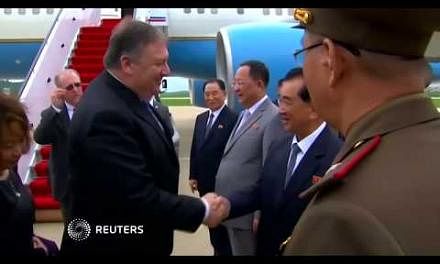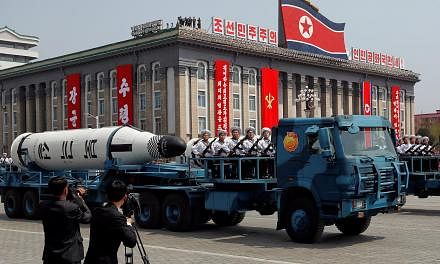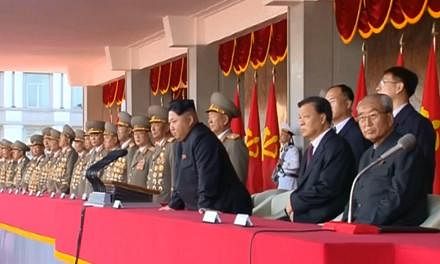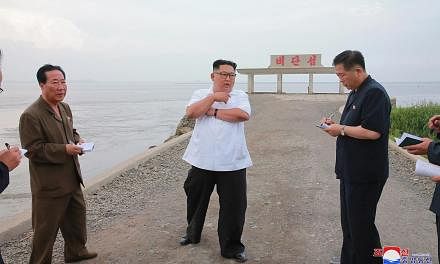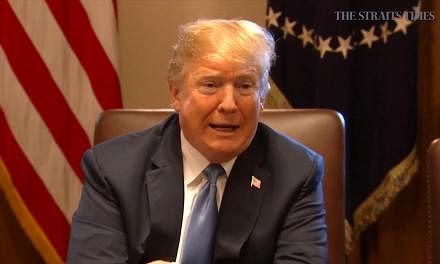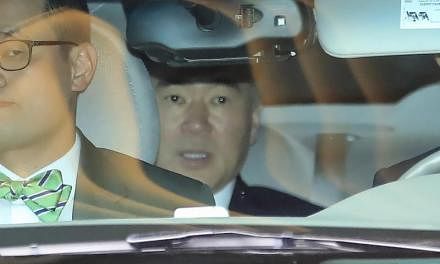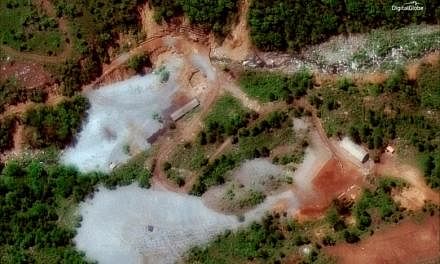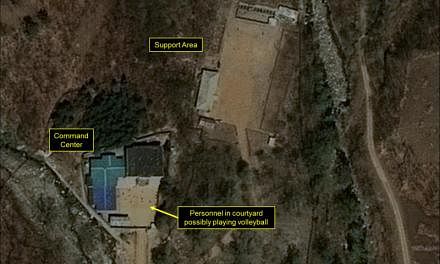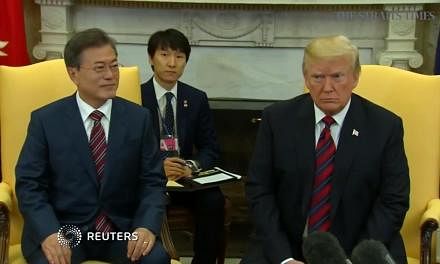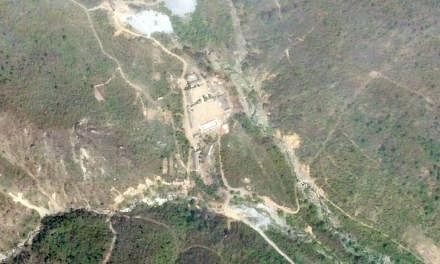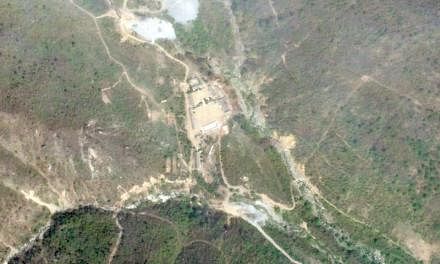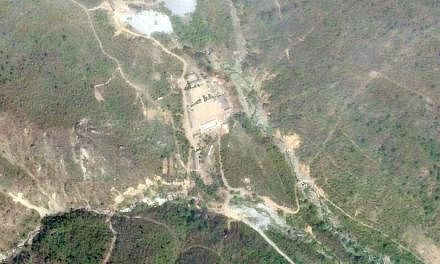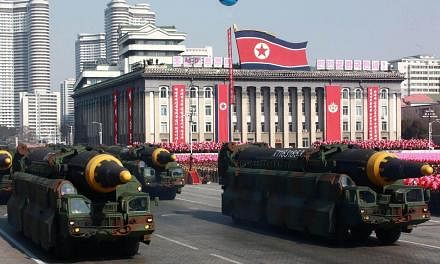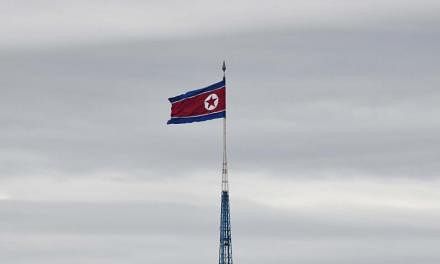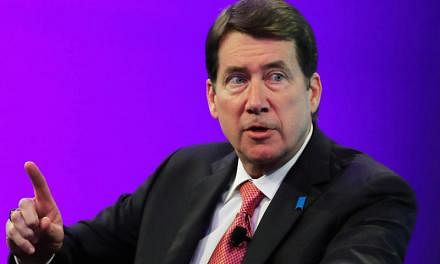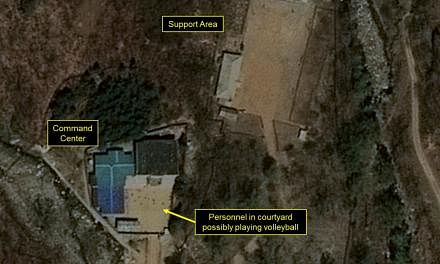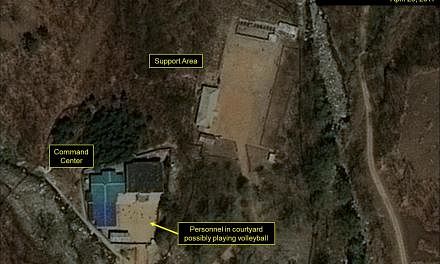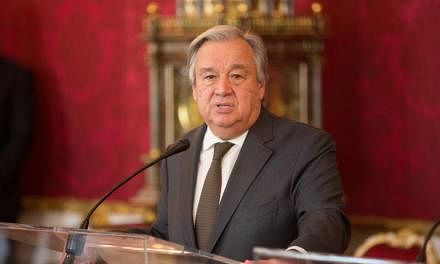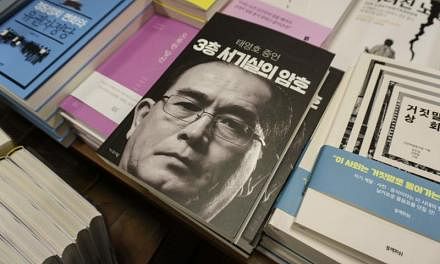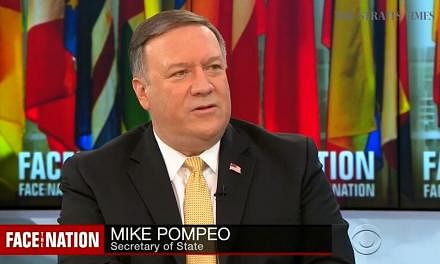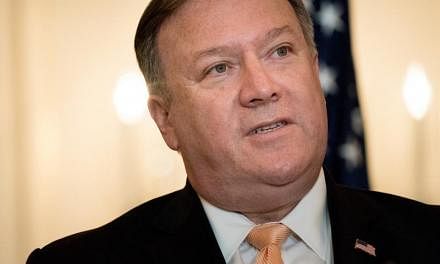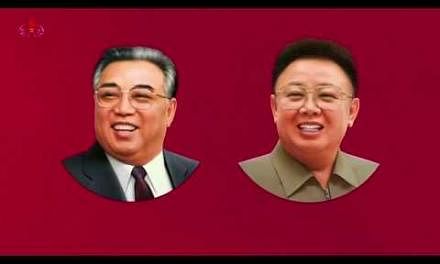SEOUL • South Korean President Moon Jae In has ordered his officials to closely analyse North Korea's latest missile launch and prepare for possible new threats.
He warned of possible new North Korean threats such as EMP (electro-magnetic pulse) and biochemical attacks, his spokesman Park Su Hyun said after a meeting of the National Security Council.
The powerful waves from such an EMP blast would instantly overload electrical circuits in a certain range. They would likely not cause direct bodily harm but could bring chaos in such areas as power supply and public transportation networks.
North Korea said on the day it conducted its sixth and most powerful nuclear test that it had developed a nuclear warhead that could also deliver an EMP attack.
South Korean officials said Seoul detected signs of North Korea's missile launch preparations on Thursday, and this was reported to Mr Moon that afternoon. He then ordered the military to take action.
South Korea's military said yesterday that it fired two ballistic Hyunmoo-2 missiles from an eastern site near the inter-Korean border, just minutes after the North's missile firing from Pyongyang.
One "accurately hit" a simulated target in the East Sea, also known as the Sea of Japan, about 250km away, a Joint Chiefs of Staff official told reporters. That is the same distance between the training area and the Sunan airfield in Pyongyang, where North Korea's latest missile was fired.
Mr Moon warned that North Korea's latest provocation will result only in further diplomatic and economic isolation.
Even as he said dialogue with the North was impossible at this point, his Unification Ministry said yesterday it will seek to extend humanitarian aid to the North.
Seoul said on Thursday that it was considering offering US$8 million (S$11 million) in aid to the North via United Nations agencies, days after the UN Security Council (UNSC) imposed new sanctions on Pyongyang.
"The UNSC adopted the toughest- ever sanctions resolution... North Korea's economy is expected to inevitably take a hit," said Ms Lee Eugene, vice-spokesman of Seoul's Unification Ministry. She added that it is necessary to provide aid as those who are vulnerable tend to be hit hardest during economic hardship.
"Seoul plans to support cereal or vaccine-provision projects for North Koreans. The government does not think that the move compromises the spirit of the United Nations," said Ms Lee.
REUTERS, AGENCE FRANCE-PRESSE

